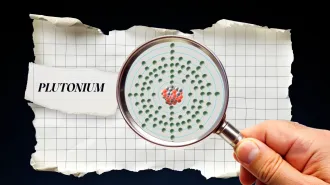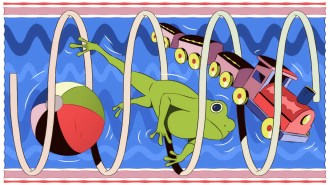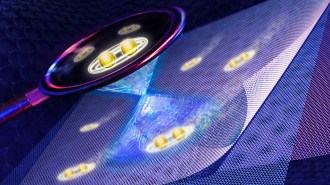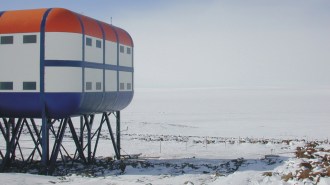50 years ago, scientists poked holes in the existence of polywater
Excerpt from the January 23, 1971 issue of Science News

In the 1970s, researchers debunked polywater, thought to have been a viscous form of water. Oddities of ordinary water, however, still perplex scientists.
Emilija Randjelovic/iStock/Getty Images Plus








